Helen Hunt, 60, Stuns During Her Latest Appearance, and Her Lips Become the Center of Attention

Dark, ever-hungry monsters live all across the Universe. They’re born when massive stars blast into space. Black holes as heavy as Earth are just as large as a ping pong ball. They don’t have a surface, but their gravity is so strong even light can’t escape it.
Black holes don’t have physical boundaries like a membrane either. The event horizon, which is closest to a typical boundary, is a threshold which, after passing, you can’t get out. For a star, running into a black hole normally ends in a spectacular light show and its destruction.
Just one star that astronomers know of managed to survive an encounter with a black hole as heavy as 400,000 Suns. It happened in a galaxy about 250 million light years away from Earth. Astronomers with really powerful equipment noticed bursts of X-rays that raged in space every nine hours. They thought they must be mayday signals from a star trapped by a cosmic abyss.
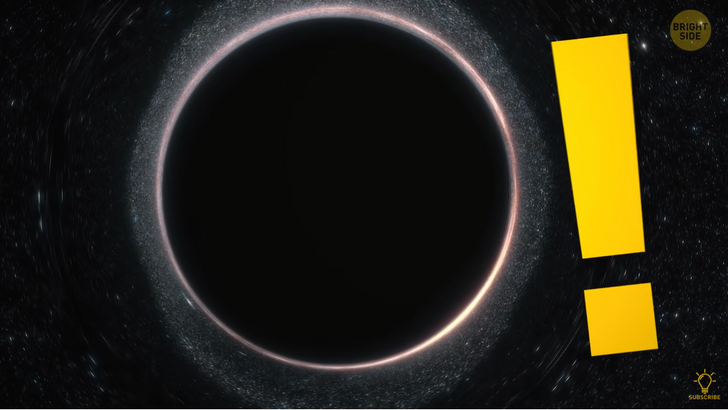
The star was an average red giant when it met its new friend for the first time. When they got too close to each other, the hungry space monster couldn’t resist the temptation, and snacked on its guest. When it was done with the star’s outer hydrogen layers, all that was left was the star’s core. Eventually, the poor thing turned into a white dwarf. But for some reason, the giant space monster couldn’t finish the meal and trapped it in its orbit for later instead.
Ever since, the now white dwarf has been traveling in nine-hour laps. It stays far enough from the hole, so it won’t fall in or get swallowed. Its journey isn’t going super smoothly. Because of gravity, the orbital path is constantly rotating. After two days, it resembles a spirograph pattern.
As the black hole keeps snacking on it, the star keeps losing its mass and growing in size. Its own orbit is becoming more and more circular. Scientists believe one day it will be able to spiral away from its mean friend and... turn into a planet the size of Jupiter in a trillion years. It’s 70 times longer than the Universe has existed so far, so it might not ever happen.
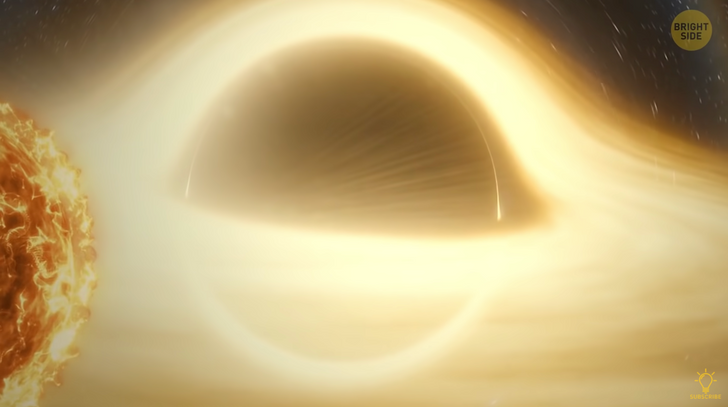
The Milky Way alone has hundreds of millions of black holes, and there are way more beyond it. They might feed on other stars and release them in other galaxies. The telescopes that exist now might not be strong enough to spot them. Most galaxies, including our Milky Way, have supermassive black holes at the center. They can be billions times heavier than the Sun. Others of their kind are only 3 times the mass of the Sun.
The nearest black hole to the Earth was spotted 1,000 light-years away, just around the corner in galactic terms. It’s in a star system you can see with an unaided eye. Scientists found it when they noticed a star behaving weirdly. It was a giant rotating like crazy. They guessed it must have a powerful gravitational companion.
The hungriest black hole astronomers have spotted so far weighs as much as 34 billion Suns and is about 8,000 times bigger than the one at the center of the Milky Way. It eats the equivalent of one Sun every day.
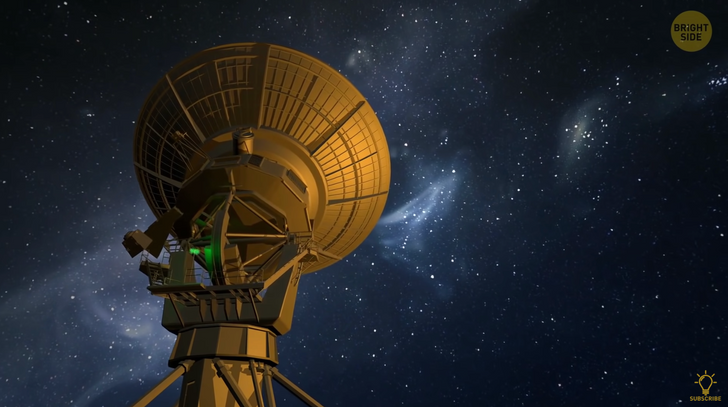
Sometimes black holes even devour others of their kind that happen to be too close to them. Before you get on a spaceship to escape to some safe no-black-hole galaxy, here’s some good news. Even though they’re supermassive, they don’t have a radius large enough to destroy Earth. And even the hungriest of them are safe to watch from a distance.
No black hole should come closer to our planet than the Sun for as long as the Universe has existed multiplied by 10 billion times. [13.8 bln yrs * 10,000,000,000] In the unlikely case one of these scary things passes by Neptune, it could affect the Earth’s orbit. That would be no good.
In theory, anything can turn into a black hole. The only difference between it and the Sun is the material their centers are made of. It’s incredibly dense in those huge space monsters. In reality, there’s just one known way to make a black hole. It has to be the gravitational collapse of a supermassive star, 20 to 30 times the mass of the Sun.
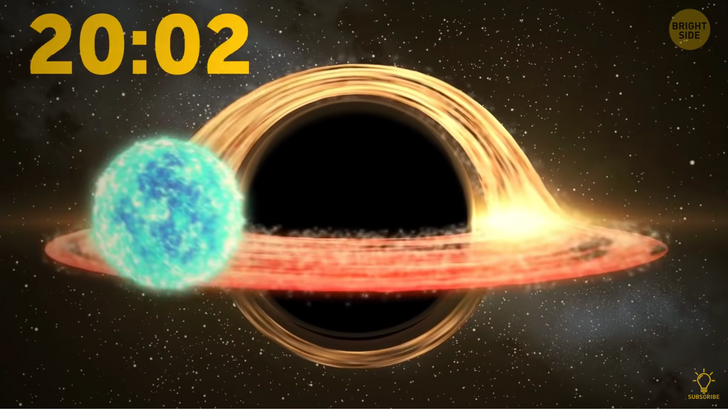
So, the Sun will never, ever become a black hole. If it happened, though, and the former star retained its mass, it would still have the same gravitational power. Earth would still keep going around it and wouldn’t get pulled in. Its orbit would also remain as it is.
The only huge problem would be the lack of sunlight. In reality, the Sun isn’t massive enough for such a transformation and will eventually become a white dwarf. A black hole won’t ever eat an entire galaxy for lunch. There are about 400 billion stars inside the Milky Way.
Just around 0.1% of all the stars that ever form will end up becoming black holes. The ever-hungry supermassive monster located right in the middle of a galaxy has an impressive gravitational reach, but even that wouldn’t be enough. It has already eaten most of the stars that were close to it. It already weighs like a few million Suns, so it can’t grow much larger even if it keeps snacking on Sun-like stars.
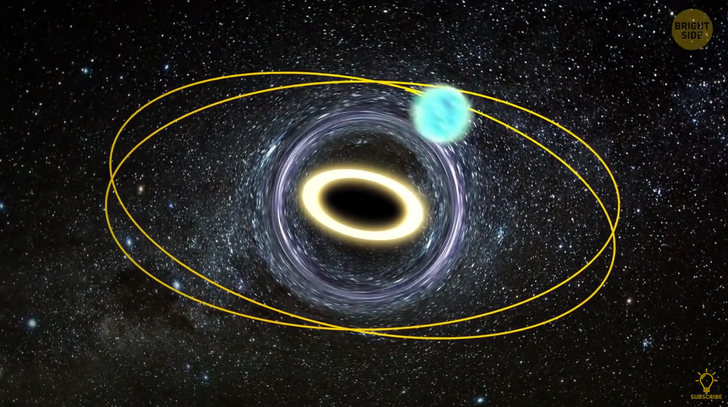
Galaxies will keep bumping into each other, and black holes will keep growing and merging. But because the Universe is already huge and keeps expanding, these collisions and mergers won’t go on forever. Black holes will travel this huge space like rogue stars. They won’t even be able to eat the dark matter on the outskirts of galaxies. Eventually, all the black holes will perish, but that would be a long, long time from now.
If you ever become a space explorer and travel far enough to meet a black hole and fall into one, your life won’t instantly end. Instead, things will be way more complicated. The way you perceive space and time will change, and your reality will split in two. In one of them, you’d cease existing. In the other, you’d live and enter the hole unharmed.
When you go deeper inside the hole, you’ll notice space becoming curvier and curvier. At the center of the hole, it’s infinitely curved. It’s called singularity. Laws of physics based on the ideas of space and time don’t have power here.
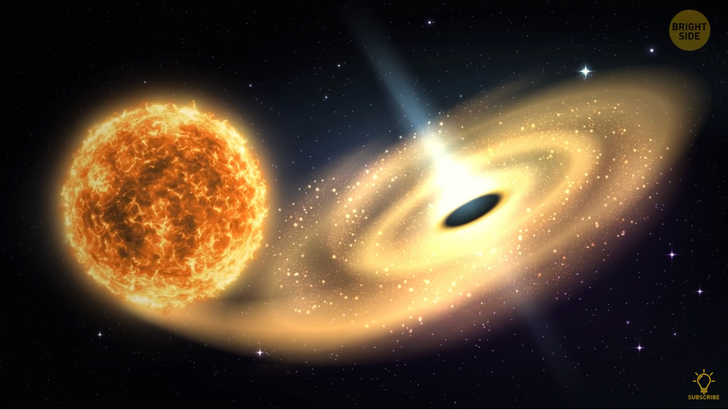
In a large enough hole, millions of times more massive than the Sun, things would go perfectly smoothly for you, and you’d just keep free-falling feeling no gravity. You could just keep falling and falling in total emptiness until you reach singularity. You’d have no chance to move in the opposite direction. In there, space and time switch roles. Time is constantly pulling you forward on Earth, but figuratively, and it would be doing that quite physically inside the hole.
In a smaller hole, the force of gravity would be stronger at your feet than your head. That’s why you’d go through “spaghettification”. This is how scientists call the process when you compress horizontally and stretch vertically like spaghetti because of the crazy gravity of the black hole.
Speaking of spaghetti, how are black holes are like an Italian dinner? Because once you go “pasta” the event horizon, you get “spaghettified”, and since you’re all by yourself, you’d be feeling “cannelloni” right now. Wow, now I’m hungry...
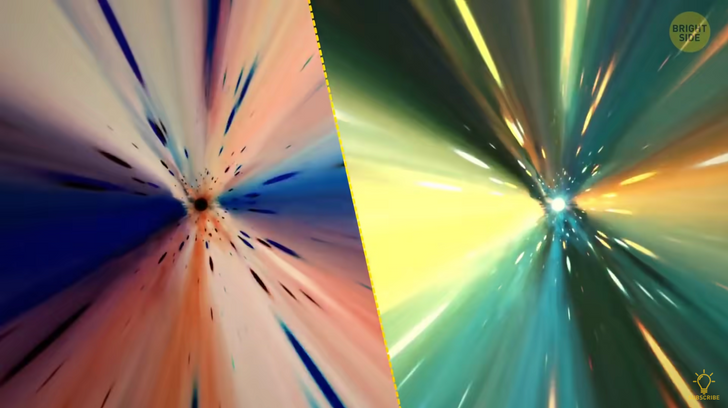
Meanwhile, if you had a fellow space traveler who for some reason didn’t end up in the black hole, it would all look different to them. They’d see you stretch and grow, like through a huge magnifying glass. The closer you’d get to the edge of the hole, the more it would seem like you’re moving in slow motion. Then, you’d freeze, and the flames would surround you.
You’d be in two places at the same time living different destinies, but there would still be just one copy of you. This is how black holes teach us nothing is real. Reality can be different to different people. Some scientists believe that we’re all living inside a huge black hole. Everything in the Universe started with the Big Bang. But there’s a theory saying there was also something before that.
It was a super dense seed that had all the mass and energy of the Universe concentrated in it, about as heavy as a billion Suns. It was a trillion times smaller than any particle humans can observe. This seed could be born inside a black hole. If you believe there’s more than one Universe, black holes could also serve as doors between those universes. It could be like a root that two trees share.
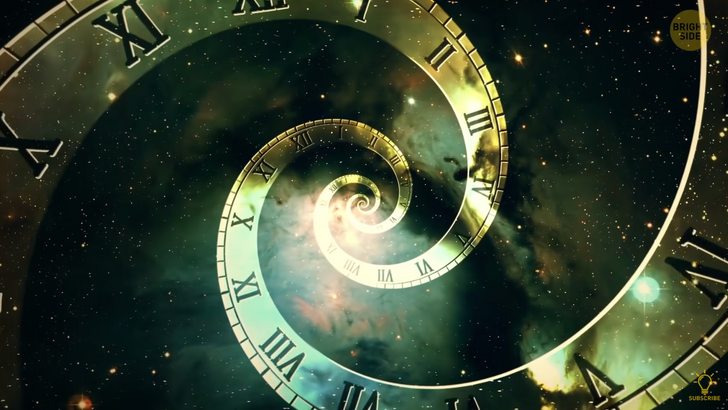
You can’t see a black hole directly because it doesn’t give off any light. Scientists used to be able to only spot them by what they were doing to their surroundings.
When over 200 scientists around the world worked together, they managed to take the first pictures of that space oddity. The equipment they used, added together, would be the power of a telescope the size of Earth.











